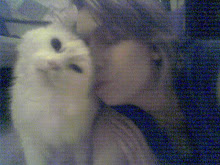Literacy and Thought
I stumbled upon an interesting concept while I was researching articles for my paper last week. I had planned to write my paper on cognitive theories of reading comprehension and cognitive apprenticeship models of instruction. It is a fairly well-understood and recognized idea that cognitive processes underlie reading comprehension. Various processes such as working memory and reasoning are required to engage in subskills of comprehension like drawing inferences, finding the main idea, summarizing, generalizing, anything that constructs meaning from text.
I was all set to focus on the cognitive perspective when I discovered a rather strange idea, one which was hotly debated in the 80s, but has fallen into disrepute. But, I decided to resurrect the idea and even make it my thesis; that is how enamored I was of this idea. Basically, the concept is that the relationship between reading and cognition is reciprocal. I switch now to the terms that the authors used, basically, literacy impacts thought. The more we read, the more prepared we become to think critically and scientifically. The more exposed we are the discussion of text, the more we develop tools of thought. Tools that allow us to move from concrete to abstract thinking. Tools that bring us to the point of academic, scientific reasoning, the pinnacle of formal thought, as Piaget described.
I was blown away by such an idea. Indeed, what an amazing concept. Then I found indirect evidence in the form of the effectiveness of the cognitive apprentice models of reading comprehension instruction. The core premise is to approach instruction in a combined format, using explicit instruction of reading comprehension strategies within a discussion group setting, either teacher with one student or peer tutoring. The teacher discusses the passages in such a way as to make the thought processes necessary for comprehension available to the student. Then discussion further develops said thinking processes in the child, as the teacher models the thinking and encourages the student to partake of such thinking until able to do so on her own. There is substantial evidence that this technique increases the children’s reading comprehension scores.
As children are in the process of becoming literate, their ability to think qualitatively changes. Would that not be a fascinating question to study? As cognition allows for literacy, does literacy in turn allow for more sophisticated modes of thought? This warrants further investigation.
Side Note: I’m not suggesting that illiterate people cannot attain higher level thinking, but that literacy in one way through which one can attain higher level thinking.




2 Comments:
You may have come across the following title already in your study of literacy/cognition, but just in case let me recommend Jean Chall's "Stages of Reading Development." She borrows a page from Piaget and comes up with a hierarchical stage model for how children/adults gain literacy. She dances around some of your ideas specifically in her Stages 3,4, and 5 where she talks about learning to read from multiple view points. It is an older work (early 80's I think?), but thought I would put it out there just in case.
Best of luck with your studies.
Interesting, I'll check out that reference. The 80s would correspond with the time period in which this idea was mostly under consideration. Thanks.
Post a Comment
<< Home